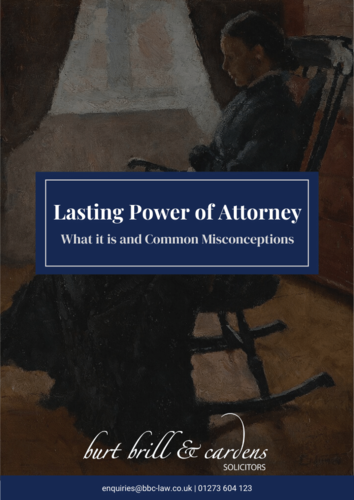Insights
What is a Power of Attorney?
A Power of Attorney is a legal document in which someone names another person to make decisions on their behalf and to sign documents for them.
There are different sorts of Power of Attorney. The Powers of Attorney Act 1971 set out the rules for an ordinary power of attorney. This is a power which someone who is of full age and of sound mind can appoint one or more people to act on their behalf signing documents for them and making decisions for them. This sort of Power of Attorney lasts for a year, after which additional steps have to be taken to ensure it remains valid. Typically such a Power of Attorney is used by someone who is going abroad for a period of time and wants document signed on their behalf in their absence.
An ordinary Power of Attorney comes to an end when the person who gave it no longer has mental capacity. This is often the case if the person making it is elderly with failing mental ability. To ensure that you and your family are protected if you were to lose capacity, the solution is to make a Lasting Power of Attorney, rather than an ordinary Power of Attorney.
Unlike an ordinary Power of Attorney, a Lasting Power of Attorney is upheld even if the person who gave the power loses mental capacity. Often this is the case when the Power of Attorney is most needed, and although is often used for people in later years, it is just as applicable for younger people in special circumstances. We have a lot more information about lasting powers of attorney which can be found here. Any power appointment will come to an end when the person who gave it passes away.
An ordinary power appointment and lasting powers of appointment are of limited use when it comes to a trustee wishing to appoint someone to act on their behalf. This is a trustee power appointment. If a trustee wishes to delegate power to another individual for a limited period of time then a special trustee power appointment is required.
Any person appointed under a power of attorney has a duty to act responsibly and in the interests of the person who gave the power, and not take advantage of the power for their own means. The person appointed under power attorney cannot make all decisions. In particular there are limitations on what a person may do under a lasting power of attorney and more information about the powers of such an attorney can be found here.

Lasting Power of Attorney
There are a lot of myths and assumptions around LPAs. We know that if you or someone you love are thinking about making an LPA, it can be difficult to tell fact from fiction. That’s why we’ve designed our myth-busting guide, completely free of charge for you to download.
David Edwards
David has been a Director in the firm since 1986. In addition to his role as Managing Director, David is also Head of the Private Client team.
Read More About DavidGet in touch
Speak to one of our solicitors today. We would love to hear from you and discuss any legal issues you may have and how we can assist you.